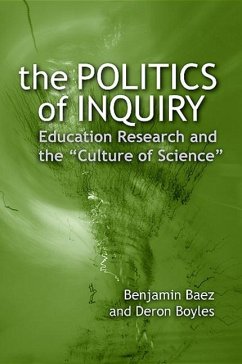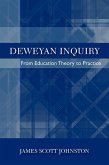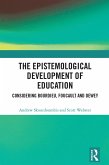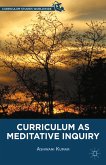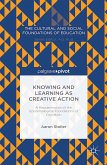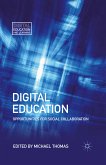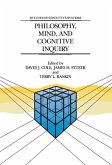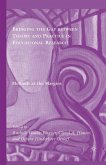Winner of the 2010 Critics' Choice Award presented by the American Educational Studies Association
2009 CHOICE Outstanding Academic Title
In The Politics of Inquiry, Benjamin Baez and Deron Boyles critique recent trends in education research to argue against the "culture of science." Using the National Research Council's 2002 report Scientific Research in Education as a point of departure, they contend that the entire discourse on education science reflects a number of distinct but mutually constitutive political forces or movements that use science and education to shape what we can think, and, thus, what we can become. These forces include the attempts to restrict democracy via scientism; the uses of academic classifications for organizing the world into social groups; the imperatives of the informational society, which seek precision in order to convert the world into "data" for easy governing; and the effects of transnational capitalist exchanges, which convert everything into a cost-benefit analysis, and which make us all complicit in ways we do not fully grasp. Baez and Boyles examine these forces and offer an alternative to the current pushes to make educational inquiry scientific.
2009 CHOICE Outstanding Academic Title
In The Politics of Inquiry, Benjamin Baez and Deron Boyles critique recent trends in education research to argue against the "culture of science." Using the National Research Council's 2002 report Scientific Research in Education as a point of departure, they contend that the entire discourse on education science reflects a number of distinct but mutually constitutive political forces or movements that use science and education to shape what we can think, and, thus, what we can become. These forces include the attempts to restrict democracy via scientism; the uses of academic classifications for organizing the world into social groups; the imperatives of the informational society, which seek precision in order to convert the world into "data" for easy governing; and the effects of transnational capitalist exchanges, which convert everything into a cost-benefit analysis, and which make us all complicit in ways we do not fully grasp. Baez and Boyles examine these forces and offer an alternative to the current pushes to make educational inquiry scientific.
Dieser Download kann aus rechtlichen Gründen nur mit Rechnungsadresse in A, D ausgeliefert werden.

